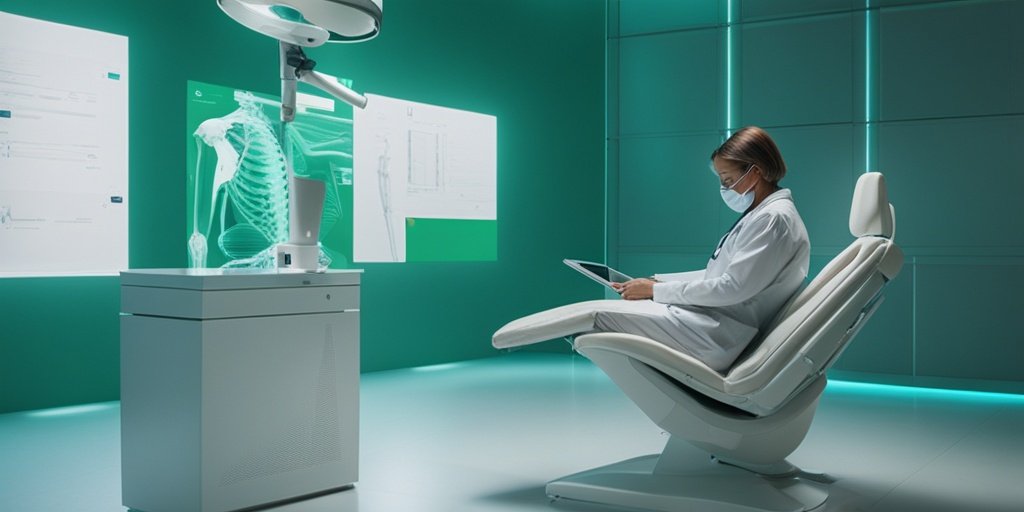⚡ Quick Summary
A recent study evaluated the ability of ChatGPT to answer the most common patient questions regarding Total Shoulder Arthroplasty (TSA). The findings revealed that while ChatGPT achieved a cumulative grade of B-, it still lacks the depth of knowledge provided by orthopedic surgeons.
🔍 Key Details
- 📊 Questions Analyzed: 15 frequently asked questions about TSA
- 🧑⚕️ Evaluators: Three board-certified orthopedic surgeons
- ⚙️ Grading System: Alphabetical grading (A-F)
- 🏆 Overall Grade: B- for ChatGPT’s responses
🔑 Key Takeaways
- 🤖 AI Utilization: ChatGPT is increasingly used for initial patient inquiries.
- 📉 Limitations: Responses often lacked recent research and required professional clarification.
- 🔄 Deferral: ChatGPT deferred specific questions to orthopedic surgeons in 8 out of 15 cases.
- 📝 Response Quality: General/preoperative and postoperative questions both received a grade of B-.
- 📚 Knowledge Gaps: The chatbot sometimes went beyond the question scope, leading to inaccuracies.
- 💡 Patient Education: While AI can enhance patient education, it cannot replace professional expertise.
- 🌐 First Study: This is the first study to assess AI’s ability to answer TSA-related questions.

📚 Background
As patients increasingly seek information online, the role of artificial intelligence in healthcare is becoming more prominent. ChatGPT, a popular AI chatbot, has emerged as a tool for answering medical questions. However, the accuracy and reliability of its responses remain a concern, particularly for complex medical topics like Total Shoulder Arthroplasty.
🗒️ Study
The study aimed to evaluate the quality and accuracy of ChatGPT’s responses to the 15 most frequently asked questions about TSA. Researchers compiled these questions from eleven trusted healthcare websites and posed them to ChatGPT without any follow-up or clarification. The responses were then graded by three orthopedic surgeons to assess their reliability.
📈 Results
ChatGPT received an overall grade of B-, indicating that while its responses were generally adequate, they fell short in certain areas. The chatbot’s answers to both general/preoperative and postoperative questions were graded B-. Notably, it often failed to incorporate the latest research, leading to recommendations that necessitated further professional input.
🌍 Impact and Implications
The findings of this study highlight the potential of AI tools like ChatGPT in enhancing patient education. However, they also underscore the importance of professional guidance in medical decision-making. As AI continues to evolve, it is crucial to ensure that patients receive accurate and up-to-date information, particularly for complex surgical procedures like TSA.
🔮 Conclusion
This study marks a significant step in understanding the capabilities and limitations of AI in answering patient questions about TSA. While ChatGPT can serve as a useful starting point for patient inquiries, it is clear that it cannot replace the expertise of an orthopedic surgeon. Continued research and development in AI are essential to improve its reliability and effectiveness in healthcare settings.
💬 Your comments
What are your thoughts on the use of AI in healthcare? Do you believe tools like ChatGPT can enhance patient education, or do they pose risks? 💬 Share your insights in the comments below or connect with us on social media:
Can ChatGPT Reliably Answer the Most Common Patient Questions Regarding Total Shoulder Arthroplasty?
Abstract
BACKGROUND: Increasingly, patients are turning to artificial intelligence (AI) programs such as ChatGPT to answer medical questions either before or after consulting a physician. Although ChatGPT’s popularity implies its potential in improving patient education, concerns exist regarding the validity of the chatbot’s responses. Therefore, the objective of this study was to evaluate the quality and accuracy of ChatGPT’s answers to commonly asked patient questions surrounding total shoulder arthroplasty (TSA).
METHODS: Eleven trusted healthcare websites were searched to compose a list of the 15 most frequently asked patient questions about TSA. Each question was posed to the ChatGPT user interface, with no follow-up questions or opportunity for clarification permitted. Individual response accuracy was graded by three board-certified orthopedic surgeons using an alphabetical grading system (i.e., A-F). Overall grades, descriptive analyses, and commentary were provided for each of the ChatGPT responses.
RESULTS: Overall, ChatGPT received a cumulative grade of B-. The question responses surrounding general/preoperative and postoperative questions received a grade of B- and B-, respectively. ChatGPT’s responses adequately responded to patient questions with sound recommendations. However, the chatbot neglected recent research in its responses, resulting in recommendations that warrant professional clarification. The interface deferred specific questions to orthopedic surgeons in 8/15 questions, suggesting its awareness of its own limitations. Moreover, ChatGPT often went beyond the scope of the question after the first two sentences, and generally made errors when attempting to supplement its own response.
CONCLUSION: Overall, this is the first study to our knowledge to utilize AI to answer the most common patient questions surrounding TSA. ChatGPT achieved an overall grade of B-. Ultimately, while AI is an attractive tool for initial patient inquiries, at this time it cannot provide responses to TSA-specific questions that can substitute the knowledge of an orthopedic surgeon.
Author: [‘White CA’, ‘Masturov YA’, ‘Haunschild E’, ‘Michaelson E’, ‘Shukla DR’, ‘Cagle PJ’]
Journal: J Shoulder Elbow Surg
Citation: White CA, et al. Can ChatGPT Reliably Answer the Most Common Patient Questions Regarding Total Shoulder Arthroplasty?. Can ChatGPT Reliably Answer the Most Common Patient Questions Regarding Total Shoulder Arthroplasty?. 2024; (unknown volume):(unknown pages). doi: 10.1016/j.jse.2024.08.025